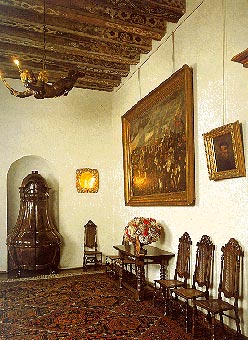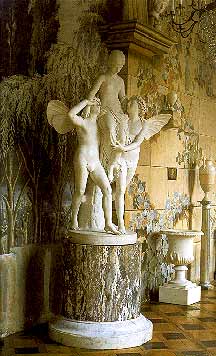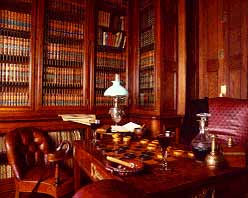| |
|
The
Castle Museum
|
Lancut - The Castle Museum

Lancut Castle is one of the few magnate
residences in Central Europe that was not destroyed during the campaigns of
World War II, nor through the actions of communist governments later.
This magnificent building in French
Neo-Baroque style has Rococo, neo-classic and nineteenth-century interiors, with
authentic painted and sculpted decoration and lavish furnishings.
The castle furniture is the work of the most famous French,
English and Austrian craftsmen of the eighteenth and nineteenth centuries.
Among the most interesting interiors are the Ballroom, the Library furnished in
late Victorian style, and the palace Theatre. The rooms are decorated with
paintings by Polish, Italian, French, Flemish, German and Austrian artists.
The sculpture gallery has objects from medieval times through the work of
Antonio Canova.
Of particular
value is the Potocki library,
 preserved
in its entirety, and the graphic art collection, containing prints from
the sixteenth to nineteenth centuries.
preserved
in its entirety, and the graphic art collection, containing prints from
the sixteenth to nineteenth centuries.
The Lancut palace group also includes, besides the
main building, the little Romantic Castle, the Orangery, the Gazebo, the Coach
Horse Stable and the Carriage House. The last two now house the Eastern
Church Art Collection and the famous Carriage Museum.
All of this is surrounded by a thirty-hectare English-style landscape park.
